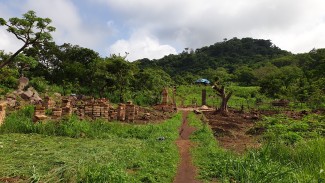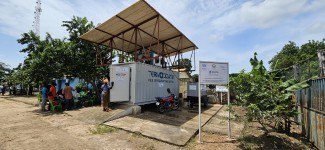A study published two years ago — the Diagnostic Trade Integration Study (DTIS) update — has helped to push forward the Islamic Republic of Mauritania’s reform agenda, by providing a roadmap for how the small African and Arab country can strategically diversify its exports to grow its wealth and reduce poverty
“Here in Mauritania we have a lot that we can capitalize on, but we don’t know how. The recommendations of the DTIS Update shone a light on what sectors to work on, how to work on them and what kind of resources are needed,” says Mohamed Lemine Vayda from Mauritania’s Ministry of Commerce.
Diagnostic Trade Integration Studies (DTIS) are intended to uncover barriers to trade and help countries prioritize where investments on trade should be directed. Forty-four percent of Mauritanians live on less than $2 per day, so the DTIS can be a powerful tool to harness trade as an engine for inclusive economic growth.
Mauritania’s first DTIS was prepared in 2001 by the World Bank Group with funding support from the Enhanced Integrated Framework programme, and provided one of the first sector-specific analytic underpinnings. Over a decade later, 20 experts have worked collaboratively with Mauritania’s central government ministries – agriculture, livestock, transport, trade and commerce – to update the DTIS (in French).
“The idea was to update our knowledge about the key constraints to growth in Mauritania. Overall what I like about the report is that it provides a roadmap for reforms that support the diversification of the economy. This is different from the standard reports, which focus solely on the diagnostics part,” says Wael Mansour, senior country economist for Mauritania at the World Bank, who played a role in disseminating the DTIS update.
The DTIS Update has become a key reference in Mauritania. It has underpinned many of Mauritania’s reforms – from the development policy operations of the World Bank that have been implemented for the first time in Mauritania in 2016, to Mauritania’s national development plan, the “Stratégie de Croissance Accélérée et de Prospérité Partagée - SCAPP, 2016-2030.”
Five different ministers attended the launch of the DTIS Update, signaling both the importance of the study, the commitment of the Mauritanian Government, and the success of the collaborative process. It’s also a testimony of the efforts from the Ministry of Trade to the promote the importance of the DTIS for the whole government, as trade has several cross–cutting dimensions.
“It wasn’t a thing that came out of the blue. The leadership of the Ministry of Commerce and the Ministry of Economy and Finance saw more central ministries convinced of the value of such analysis,” Mansour says.
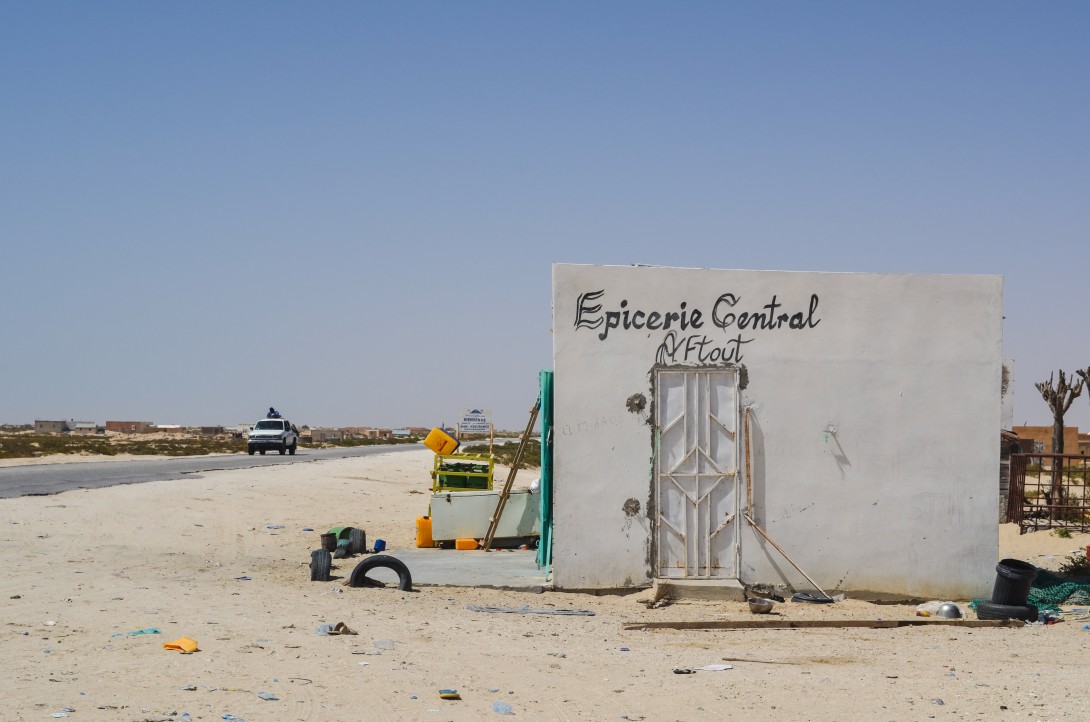
A HOW-TO GUIDE
According to Vayda, the DTIS update makes three major recommendations. The first is to diversify the economy. Currently, raw materials such as petroleum, gas and iron account for 90% of Mauritania’s exports. Such dependency creates risk when price shocks inevitably hit.
“Actually, when the DTIS update was finalized and disseminated, Mauritania was hit by a term-of-trade shock due to the collapse in international iron prices,” Mansour says. “While the government responded very well to maintain macroeconomic stability during that period, the lack of previous policies for diversification and growth has made it harder for Mauritania to absorb the shock and engage in counter-cyclical measures.”
The second recommendation provides essentially a ‘how-to’ guide for diversifying Mauritania’s exports — by transforming the agriculture, livestock, fisheries and services (IT, transport and tourism) sectors — where significant potential exists.
“The report really acknowledges the comparative advantages of Mauritania rather than shying away from them,” Mansour says.
“It doesn’t say that you shouldn’t be investing in livestock or fisheries and focus solely on the services sector: it says there are comparative advantages. Professionalizing and going up the value chain in those sectors will generate pro-poor growth, create jobs in the private sector, and lead to increased revenues that can be invested in more human capital. This will eventually be more beneficial for the economy overall, including the services sector.”
“The report really acknowledges the comparative advantages of Mauritania rather than shying away from them.”
Wael Mansour, senior country economist for Mauritania at the World Bank
Take the livestock industry, for example. With the growing global appetite for red meat and milk, the study recommends focusing the livestock sector on red meat exports and increasing manufacturing around the leather and dairy subsectors.
The story around fisheries is slightly more complex. Mauritania’s fisheries sector is considered to be one of the pillars of the national economy, Vayda says, accounting for about 30% of jobs.
“Although we Mauritanians consume relatively little fish, our waters have always been coveted by foreign boats, especially from Europe. However, we have been struggling with depleting fish stocks due to overfishing,” Vayda says.
To tackle this, the DTIS update recommends better regulation of fisheries through trade facilitation with foreign countries, and implementing a quota system.
“These are the types of examples where the DTIS is important,” Mansour says. “It specifies very concrete actions, where under each of these sectors, policies devised can help add more value and boost productivity, which eventually grows the sector, employs more people and attracts more domestic and international investment.”
The third major recommendation of the DTIS Update focuses on structural reforms needed to eliminate administrative slowness and corruption, and to create more transparency.
According to Mansour, this is where things get complicated: “the DTIS recommends Mauritania fight against these plagues (corruption, nepotism, bad governance, etc.) but does not always propose how. In other words, it can sometimes diagnose the disease without prescribing all the right medications.”
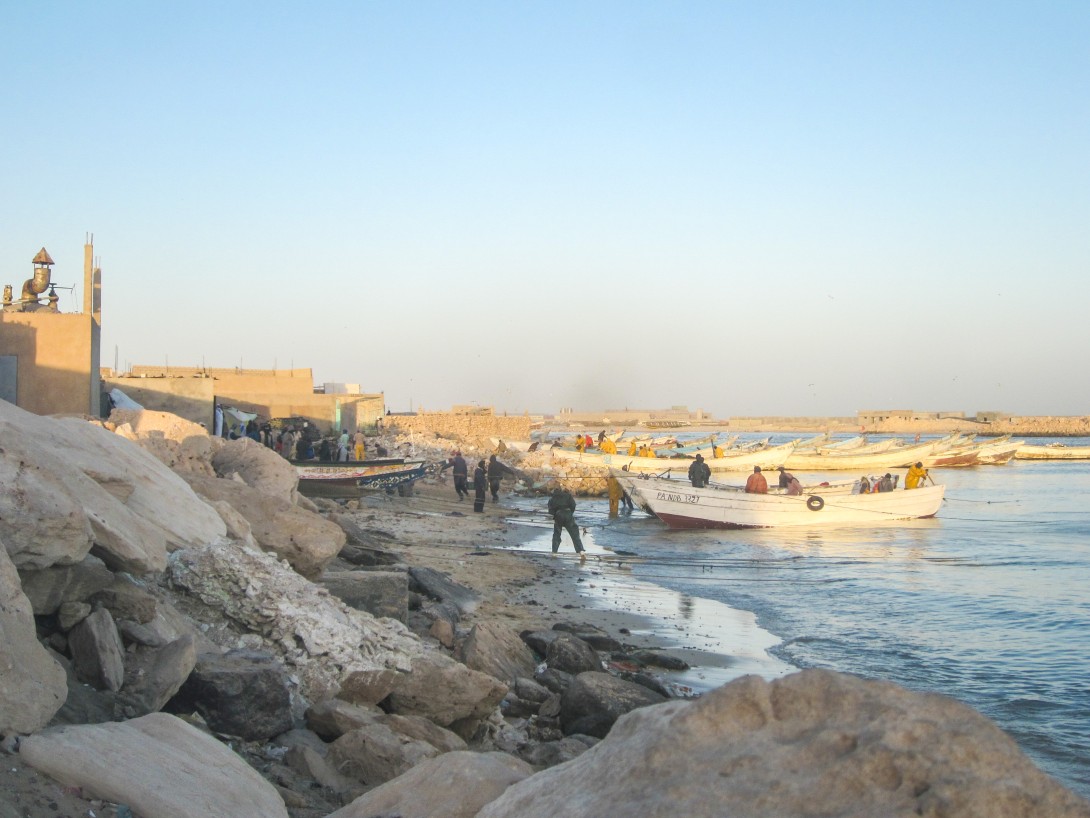
CREATING FAVOURABLE CONDITIONS
In the two years since the report was published, some gains have been made in implementing the DTIS’ major recommendations, mostly in creating favorable initial conditions needed to grow certain sectors and attract more investors.
The government has had a strong focus on improving the business environment: putting in place mechanisms to help small and medium enterprises, create more competition in public procurement tenders to crowd-in the private sector, increase public investment efficiency by revising the public investment portfolio, and introduce filters to screen projects more consistently for financial, economic, environmental and social returns.
“It has take a lot of effort and a lot of changes in regulations to improve the business environment,” Mansour says.
“However this has led to Mauritania significantly improving its ranking in the ‘doing business’ index [a measure of how conducive the regulatory environment is to business]. For two consecutive years it has been among the top 10 performers in Africa.”
There have also been a number of major trade facilitation gains. Mauritania has signed a free trade agreement with the Economic Community of West African States (ECOWAS) in August 2017, the landmark African Continental Free Trade Agreement (AfCFTA) in March 2018, bilateral road transport agreements with Mali and Senegal, and an Economic Partnership Agreement with the European Union.
The government has also modernized its transport hubs and upgraded its customs systems.
“The fact that no one now complains about customs' performance is rare enough to be underlined!” Vayda says.
Sector-specific reforms have also been mostly regulatory in nature thus far, enabling laws to be operationalized, the sector to formalize and international environmental and sanitary measures to be met.
“The fact that no one now complains about customs' performance is rare enough to be underlined!”
Mohamed Lemine Vayda, Mauritania’s Ministry of Commerce
However, a number of the reforms in the fisheries sector intended to combat overfishing have received a mixed response.
A fishing deal that sees European vessels granted permission to catch 281,500 tonnes of fish per year in Mauritanian waters in exchange for funds to support the activities of fishing communities has been criticized for not truly benefiting local fishing communities, or improving the country’s fishing sector.
And revisions to the quota system, where government will allocate tonnage to applicants on the basis of scientific reports issued by the Mauritanian Institute of Oceanographic Research and Fisheries, has been criticized by small-scale fisherfolk who feel they will not be able to support competition with foreign ships.
“They say that the quota system lacks transparency and that the main beneficiaries of these quotas are foreign vessels and not the Mauritanian citizen,” Vayda says.
According to Mansour, the Mauritanian government has put in place a new framework for environmental monitoring and assessment of fishery wealth. It has also organized its domestic fleet. Comprehensive reforms in the fisheries sector seem to have not only provided the government with higher budget revenues, but also contributed significantly to the growth in the sector.
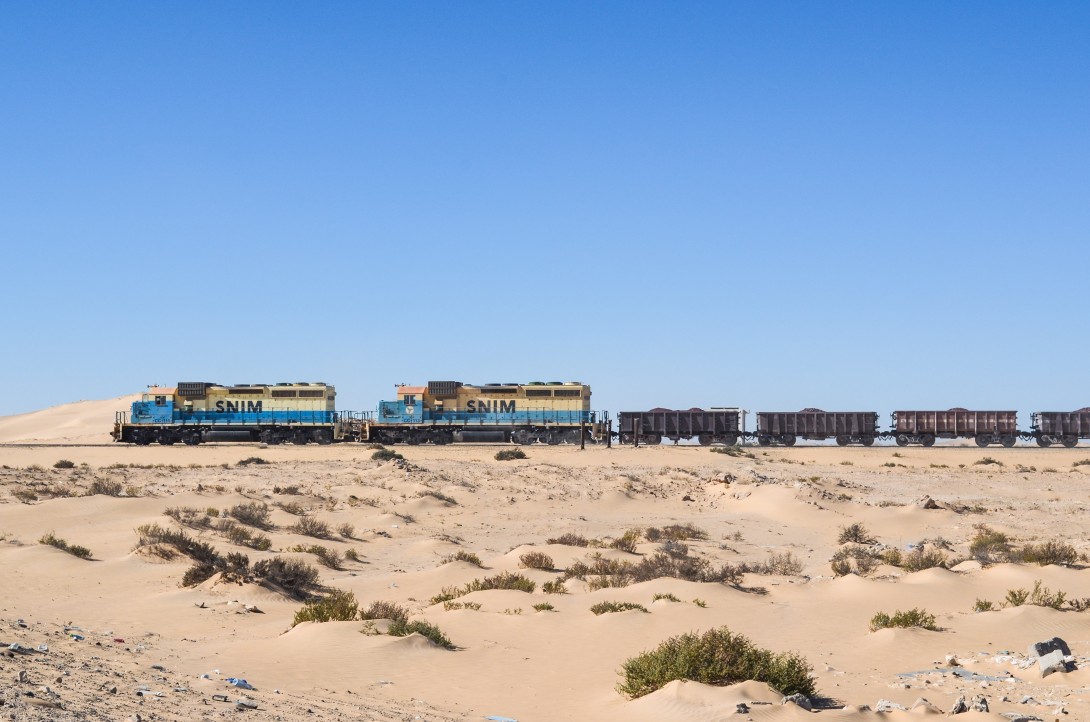
RALLYING AROUND THE REFORM AGENDA
Recently, the Mauritanian government has put in place the aforementioned national 10-year strategy (SCAPP), and this includes a plan to increase public investment, attract more public-private partnerships, focus on governance, macrostability and more investments in human capital.
“This strategy covers a lot of what the DTIS talked about in priority sectors and enabling environments. There are a lot of similarities between the national strategy and the DTIS. Donors are now rallying around this national strategy and trying to help the government implement it,” Mansour says.
“Mauritania is not a big country but there are a lot of opportunities, particularly given its strategic position as both an African and Arab country. If the conditions are right, it could leverage this position.”
If you would like to reuse any material published here, please let us know by sending an email to EIF Communications: eifcommunications@wto.org.

